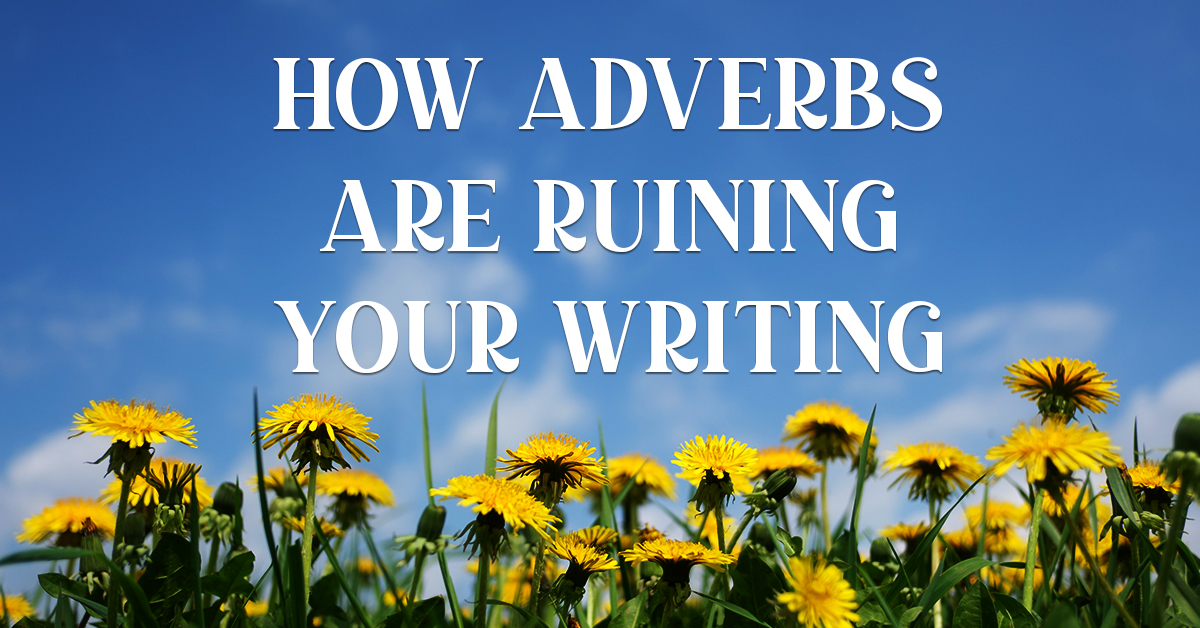Sometimes adverbs are awesome, necessary, and important. But other adverbs are thorny weeds choking the beautiful sentences of your manuscript.
And those need to be yanked out.
Step #1: Identify redundant adverbs
The easiest way to spot toxic adverbs is to look at your adverb’s relationship to your verb. Ask yourself: does the omission of the adverb change the meaning of your verb?
Here are some examples:
- yelled loudly
- whispers quietly
- smiled happily
- cried sadly
If someone is yelling, it’s already assumed it’s being done loudly. Therefore “loudly” is redundant and adds nothing new or special to your sentence. Pluck that weed!
Step #2: Choose a stronger verb
Now, think about why you chose to try to emphasize your verb “yelled” with “loudly”. Perhaps it was because that verb didn’t feel strong enough for your sentence. In this case, consider swapping your verb for a bolder choice.
Here are some substitutions for, “She yelled loudly.”
- She bellowed
- She screeched
- She screamed
- She raged
- She hollered
Q. When are adverbs necessary?
Answer: When they add something new or special to your verb or when they otherwise alter your verb’s meaning.
Examples of adverbs that change the meaning of their verb:
- grinned sardonically
- smiled lecherously
- whispered loudly
- sobbed happily
When someone smiles, it’s assumed they are doing it because they are happy. So, smiled happily is redundant. But smiled lecherously adds a new layer of meaning that wasn’t there before. Now, it’s not a happy smile, but a lewd and creepy smile that would make another character feel uncomfortable. The meaning has been altered.
What other ways can we enhance the verb to smile with an adverb?
- smiled viciously
- smiled sadly
- smiled guiltily
Pro-Tip: What can I use instead of adverbs?
Option #1: Convey emotion through dialogue itself instead of dialogue tags
What our characters say and the words they choose to say it matters. Word choice adds color, life, depth, and realism to the people you create.
Here’s an example:
- “Quiet,” the headmaster yelled loudly.
- “Shut your mouths you stupid brats!” the headmaster said.
In the first example, we don’t get any feel for who the headmaster is. In the second, he reveals himself to be a crude authority figure who detests the children under his watch.
Option #2: Convey emotion through your character’s actions
Your characters’ actions also speak volumes. What if the headmaster doesn’t “yell loudly”? What if he does something else to achieve his goal?
- “Quiet,” the headmaster yelled loudly.
- “Quiet!” The headmaster’s ruler smashed down inches from my fingertips. I bit my tongue with the rest of the class.
Option #3: Convey emotion through relationships between your characters
How your characters react to each other also matters. Instead of having your headmaster “yell loudly”, what if the class cowers at his single word?
- “Quiet,” the headmaster yelled loudly.
- “Quiet!” It wasn’t a command. It was a threat. Cowering children held their breaths as a wicked grin sliced across the headmaster’s face.
In this instance, I didn’t use a dialogue tag or have the character do any nefarious action. Instead, I used the reaction of the characters being spoken to in order to convey the weight of the headmaster’s word.
Find your own style!
Vary your sentences. Play around with your voice.
When writing your first draft, don’t worry about your adverbs. Just focus on getting your story down on the page. When it comes time to edit though, make sure you put forth the effort to choose the best verb for each sentence!
Remember that writing is fun, even if (like gardening) it’s hard work. Roll up your sleeves and dig in to your manuscript!

